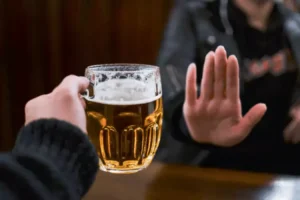
While biology sets the stage, psychology often directs the performance when it comes to alcohol induced rage mean drunk behavior. Certain personality traits have been linked to an increased likelihood of becoming aggressive when drinking. For instance, individuals with high levels of trait anger or impulsivity are more prone to alcohol-induced aggression.

Anger Management Issues
- People who tend to ignore tomorrow’s consequences may be more likely to aggressively act out when they are intoxicated and in a situation that is aggravating to them.
- Specifically, clients marked by higher anger did better at one- and three-year follow-up in the motivational enhancement condition than in cognitive-behavioral therapy (CBT) or the AAF condition (Karno & Longabaugh, 2004).
- The researchers found that the intensity and duration of shock were higher in the men from the alcohol group, while only shock duration was increased in women.
- The PFC region of the brain is where we make judgment calls about potential behavior before acting on it.
- Yet, only one study 48 has examined the likelihood of bystander intervention in a drinking context but was unable to determine if the bystanders, perpetrator, or victim had consumed alcohol.
A person who is unpleasant when sober may match unpleasant behavior when intoxicated. Simply put, people who are usually argumentative when they are sober may be more likely to initiate a fight or become aggressive when drunk. With an added boost of impulsivity due to what alcohol does to the brain, even those who classify themselves as kind and considerate when Alcoholics Anonymous they are sober can become hostile and vengeful when they are drunk. Winograd’s current research discovered that up to 25% of individuals surveyed admitted that they became significantly less agreeable, responsible, and thoughtful when they drank compared to when they were sober. Alcohol-related aggressiveness can also occur commonly if you’re already struggling with a mental health issue such as anxiety, stress, and depression.
- It’s important to note that having a genetic predisposition doesn’t guarantee someone will become a mean drunk.
- Happy drunks display open body language; relaxed postures and wide smiles being common indicators.
- Interestingly, those in the control group tended to misidentify expressions as happy.
Alcoholic Rage Syndrome: What It Is and How To Overcome It
It involves actions that are meant to harm, threaten, or injure someone physically or emotionally. Aggression can be verbal (shouting, insults) or physical (hitting, pushing). Not all angry individuals resort to aggression, but alcohol can lower inhibitions and make it more likely for someone to act on their anger. When you drink alcohol and behave aggressively, you may be violent with your family members, leading to domestic violence. Women and children are often at increased risk of domestic violence from someone addicted to alcohol.
Distinguishing Angry Drunks from Happy Drunks
By recognizing these patterns, they can learn new coping strategies and ways of thinking that may reduce the likelihood of violent outbursts. An interesting fact is that alcohol amplifies our underlying emotions at the moment of consumption. If someone’s harboring anger or frustration before drinking, it’s likely those feelings will surge once they’re under the influence – hence becoming an ‘angry drunk’. Conversely, if someone starts drinking in a jovial mood or high spirits, they may remain cheerful throughout – making them what we call ‘happy drunks’. Alcohol impacts the prefrontal cortex, which is responsible for decision-making and impulse control. This can make it harder for you to think clearly and manage your behavior, leading to increased aggression.

It is tough to face someone struggling with alcohol-related anger, especially if they are your family member as a sibling, parent, spouse, or friend. With impaired executive brain function you are less able toresist a wide array behavioral impulses. When sober and angered you might feel an impulse to punchsomeone, but https://ecosoberhouse.com/ a fear/worry of the possible consequences (get hurt, hurt someoneelse, get arrested etc.) keeps you from doing so. An alcohol-induced blackout can happen when the individual consumes too much alcohol too quickly. The more alcohol that is consumed, the higher the level of memory loss will be. Some may lose a block of minutes or hours, or even days, depending on the amount of alcohol that was consumed.
The Power And Potential Of Endorphins For Alcohol Use Disorder
When you or a loved one experiences this condition, it can lead to an increase in violent crimes such as domestic violence, rape, murder, and assault. The inability to control anger when under the influence of alcohol can strain relationships, causing significant problems between partners, friends, and family members. However, as alcohol consumption increases, it begins to impact other neurotransmitters, particularly serotonin and dopamine. When alcohol disrupts the delicate balance of serotonin in the brain, it can lead to increased aggression and impulsivity. Similarly, dopamine, often called the “reward” neurotransmitter, is affected by alcohol consumption.
What is the Connection Between Alcohol and Violence?

Setting clear limits on how much you’ll drink before going out, alternating alcoholic drinks with water, and avoiding triggers (like certain types of alcohol or specific environments) can all help reduce the risk of aggressive behavior. Past trauma and unresolved emotional issues can also contribute to mean drunk behavior. Alcohol can act as a temporary escape from painful memories or emotions, but it can also lower the barriers that usually keep these feelings in check. As a result, unresolved anger, resentment, or hurt may surface in aggressive outbursts when drinking. One common therapeutic method employed is Cognitive Behavioral Therapy (CBT). This therapy helps individuals understand the triggers and thought processes that lead to their aggressive behavior when drinking.

